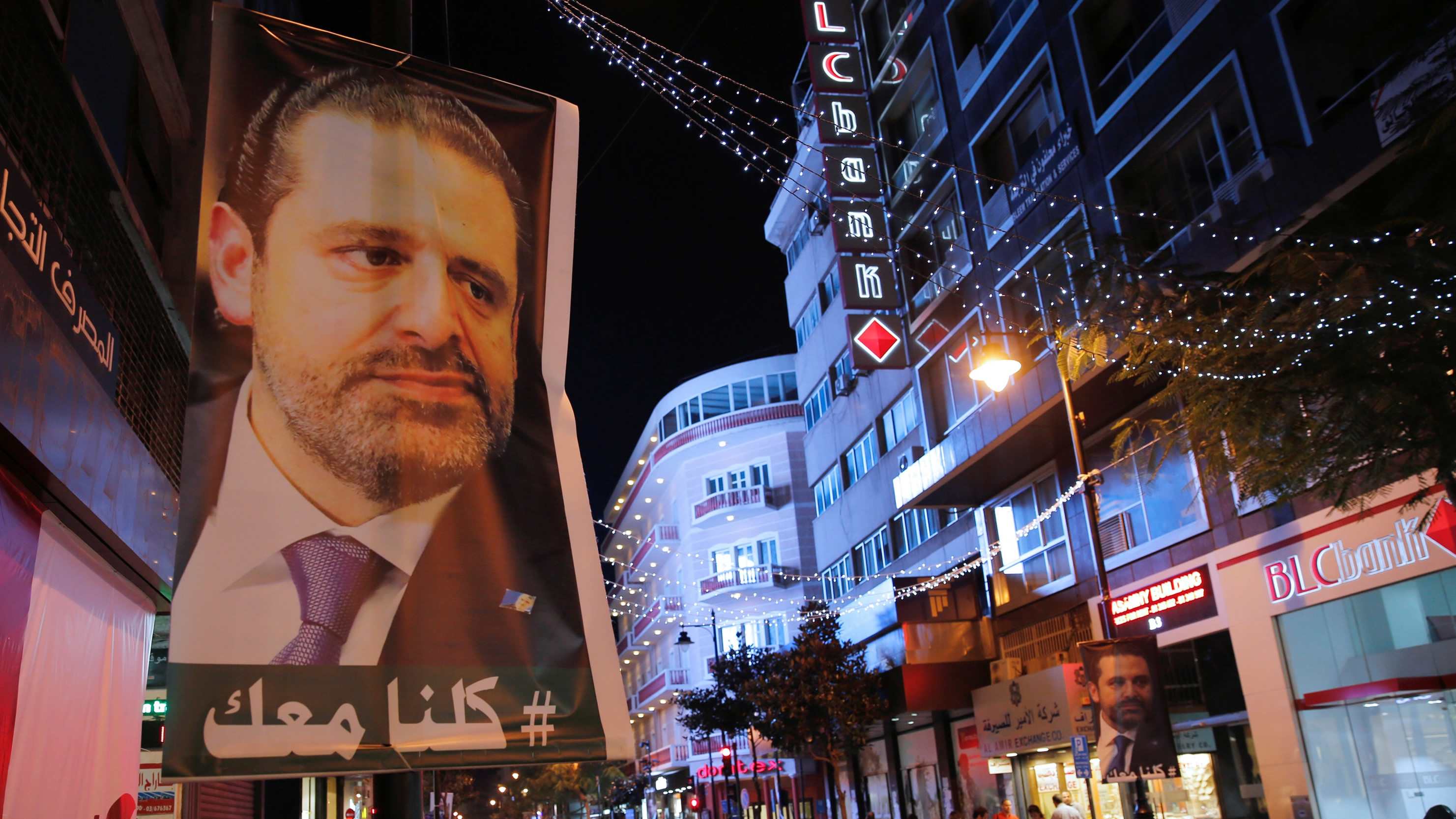Just as he stunned the world by his shock resignation as Lebanon’s prime minister in a broadcast from Saudi capital Riyadh, Saad al-Hariri made a surprise announcement on Tuesday declaring he will return to Beirut within two days.
Hariri’s abrupt resignation on November 4, in which he attacked Tehran and Hezbollah, sent Lebanon spinning into a political crisis pushing the country to the forefront of a Middle East power struggle between Sunni Saudi Arabia and Shia Iran. Hariri’s move also led to speculation that he is being held against his will in Saudi Arabia under the assertive rule of Crown Prince Mohammed bin Salman.
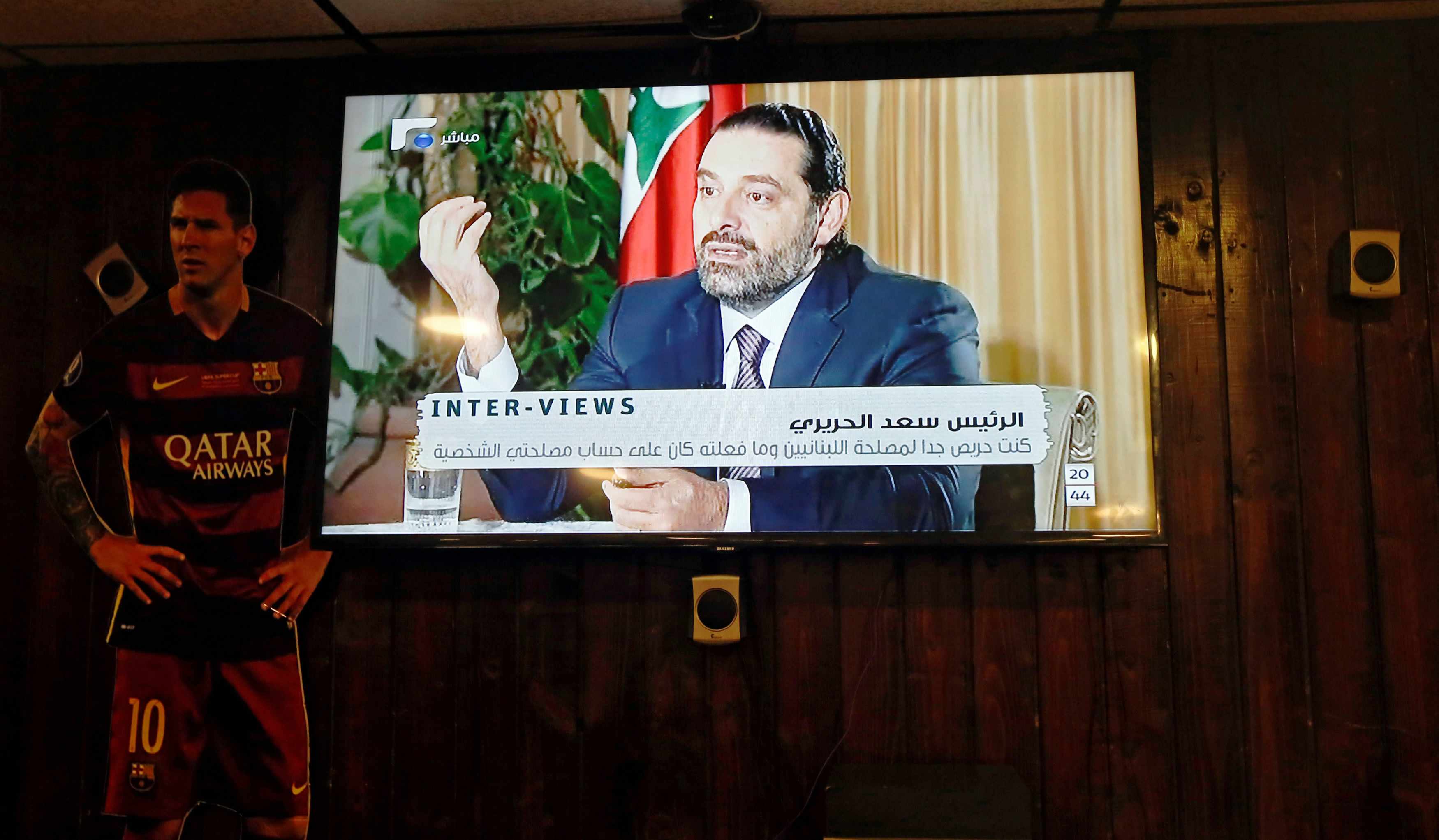
Lebanon's former prime minister Saad al-Hariri during a Future television interview, on a TV screen in a coffee shop in Beirut, on November 12, 2017. /Reuters Photo
Lebanon's former prime minister Saad al-Hariri during a Future television interview, on a TV screen in a coffee shop in Beirut, on November 12, 2017. /Reuters Photo
The government in Beirut and Hezbollah accused Saudi Arabia of kidnapping Hariri and coercing him to resign, which Lebanese President Michel Aoun said he will not accept until the former prime minister returns.
Lebanon’s Foreign Minister Gebran Bassil, who traveled to Paris and Brussels on Tuesday to brief the European Union and France on the situation, said that Hariri needed to return to Lebanon to prove he was free, amid speculations that he is under house arrest in Riyadh.
International concerns
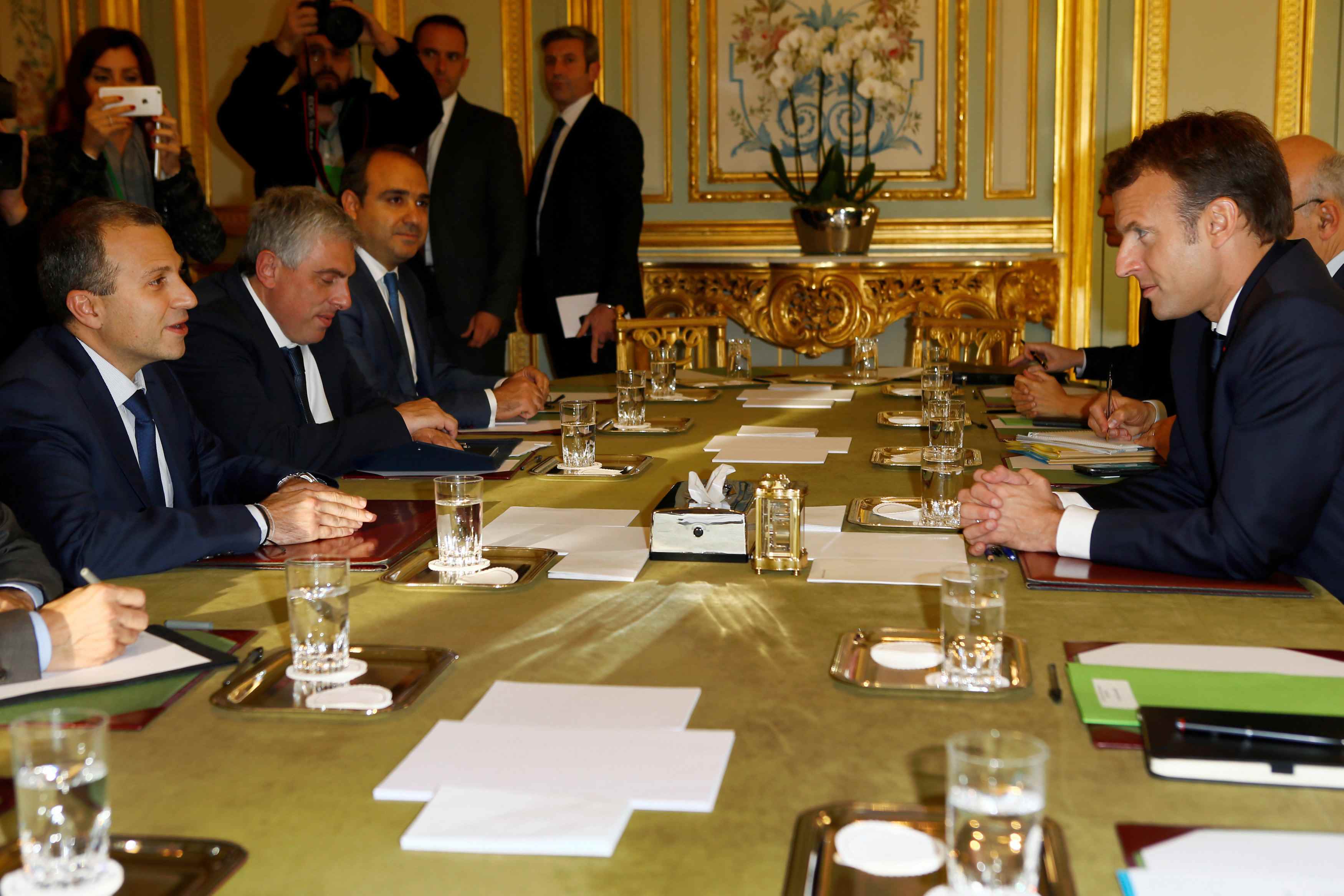
Lebanese Foreign Minister Gebran Bassil (left) and French President Emmanuel Macron (right) attend a meeting at the Elysee Palace in Paris on November 14, 2017. /Reuters Photo
Lebanese Foreign Minister Gebran Bassil (left) and French President Emmanuel Macron (right) attend a meeting at the Elysee Palace in Paris on November 14, 2017. /Reuters Photo
European nations and the US have not pointed the finger at Saudi authorities directly, but have expressed public concern about Hariri's absence and warned against attempts to interfere in Lebanon's fragile democracy.
On his official Twitter account on Tuesday, Hariri attempted to dispel rumors he was being prevented from leaving. "Guys, I am perfectly fine, and God willing I will return in the coming days. Let's calm down," he wrote.
Hariri’s announcement to return was welcomed by the EU and France, which had been steadfastly working behind the scenes to negotiate an end to the crisis.
The EU High Representative Federica Mogherini said on Tuesday after meeting with Bassil that she expected Hariri and his family to return to Lebanon in the coming days. Mogherini stressed the European Union's support for Lebanon's "stability, unity, integrity and sovereignty," according to a statement from her office. "Close contacts will continue also with prime minister Hariri, through the EU's diplomatic channels,” she said.
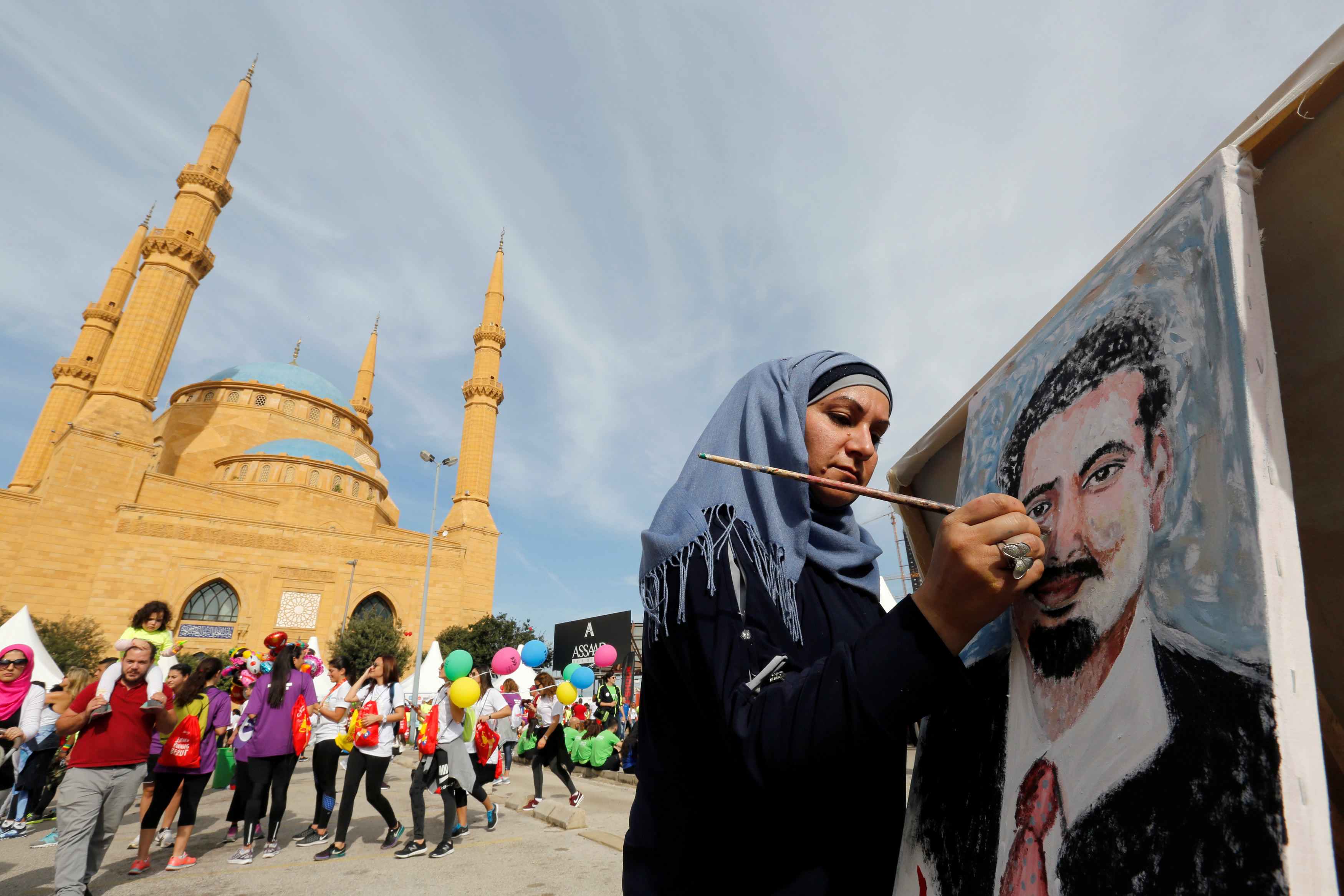
A Lebanese artist paints a portrait of Lebanon's former prime minister Saad al-Hariri during the annual Beirut Marathon, in Beirut on November 12, 2017. /Reuters Photo
A Lebanese artist paints a portrait of Lebanon's former prime minister Saad al-Hariri during the annual Beirut Marathon, in Beirut on November 12, 2017. /Reuters Photo
French Prime Minister Edouard Philippe said on Tuesday that Hariri must be able to return home from Saudi Arabia to end the uncertainty. "What's at stake is Mr. Hariri being able to return home freely to clarify his situation in line with the Lebanese constitution," Philippe told parliament, saying his resignation, announced in Saudi Arabia, had caused "a period of uncertainty."
Last week, French President Emmanuel Macron flew into Riyadh on a surprise visit and held talks with the crown prince about the soaring tension between Saudi Arabia and Iran and also about the turmoil in Lebanon, a former French colony.
China has expressed support for Lebanon’s stability and sovereignty. Following a meeting of the International Support Group (ISG) for Lebanon last week, the Chinese Ambassador to Beirut said:“We heard the introduction from President [Michel Aoun] about what’s going on and what the Lebanese side want from the international community, and we responded that the ISG countries and organizations fully support Lebanon in its efforts to maintain its stability, sovereignty and integrity.”
The ambassador expressed hope that further high-level meetings could lead to an improvement in the situation. "Hopefully it will come to a result and we should restore stability in Lebanon, which is to the benefit of all sides.”
Sanctions threat
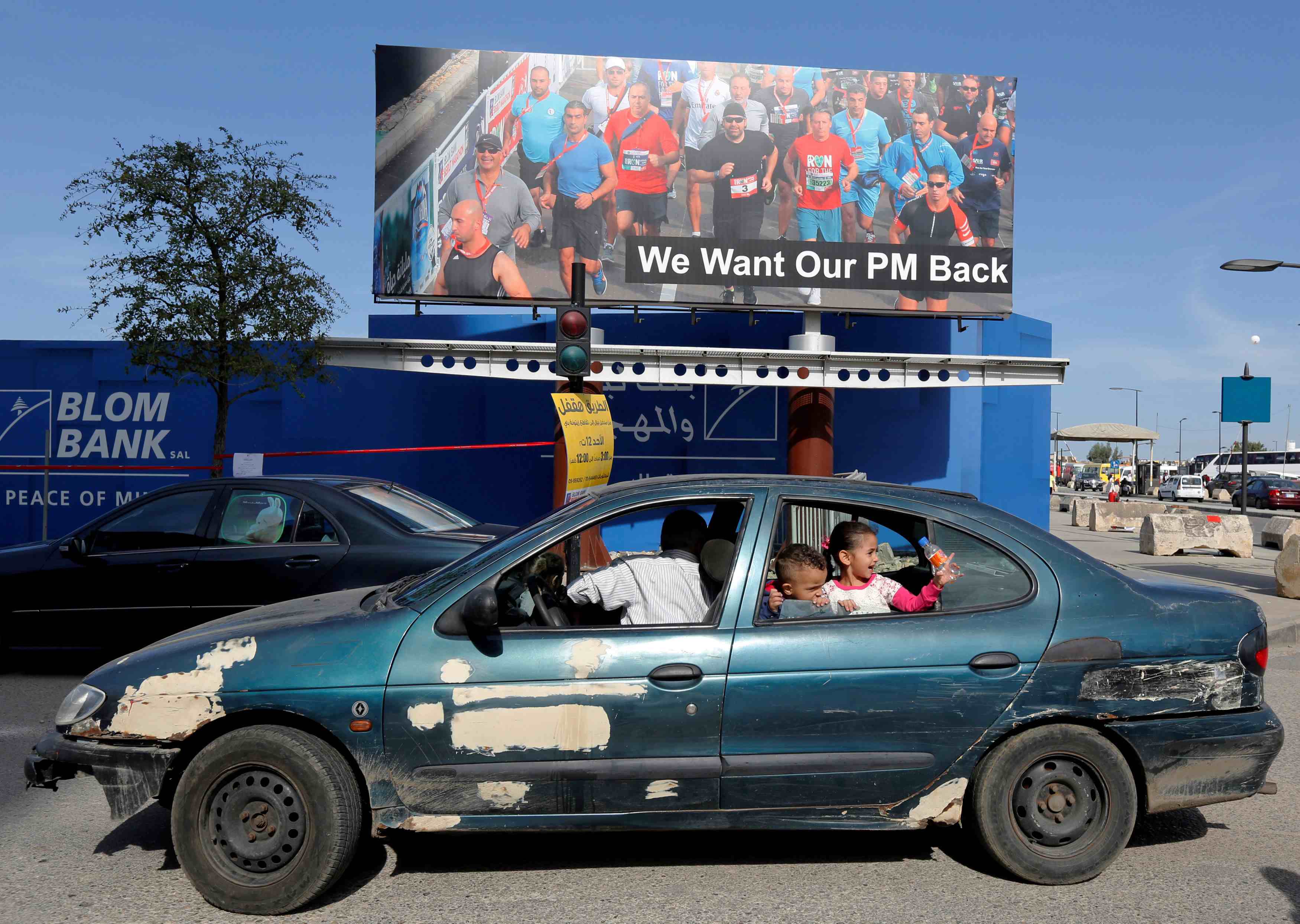
A car passes next to a billboard showing Lebanese people demanding their former prime minister Saad al-Hariri to return, during the annual Beirut Marathon, in Beirut on November 12, 2017. /Reuters Photo
A car passes next to a billboard showing Lebanese people demanding their former prime minister Saad al-Hariri to return, during the annual Beirut Marathon, in Beirut on November 12, 2017. /Reuters Photo
The Lebanese Foreign Minister in Paris on Tuesday also said that any punitive sanction by Riyadh targeting Beirut and its stability, "would be a punishment for the entire region" amid reports suggesting Saudi Arabia and its allies may impose a Qatar-like blockade on Lebanon. “Any instability in the Lebanon would cause instability in the region. The first to be touched would be Syrians in Lebanon," said Bassil.
Earlier on Sunday, Hariri in his first interview since resigning warned of possible Gulf sanctions against Lebanon and of the risk to the livelihoods of the around 400,000 Lebanese expatriates in the Gulf. He also spelled out Saudi conditions for Lebanon to avoid sanctions: Hezbollah, the Iran-backed group that is Lebanon’s main political power and part of the ruling coalition, must stop meddling in regional conflicts, particularly in Yemen.
Saudi Arabia regards Hezbollah as a terrorist group and has accused the group along with Iran of backing the Houthi rebels engaged in war with the Riyadh-backed Yemeni government. It also said Hezbollah had a role in firing a ballistic missile from Yemen towards Riyadh earlier this month.
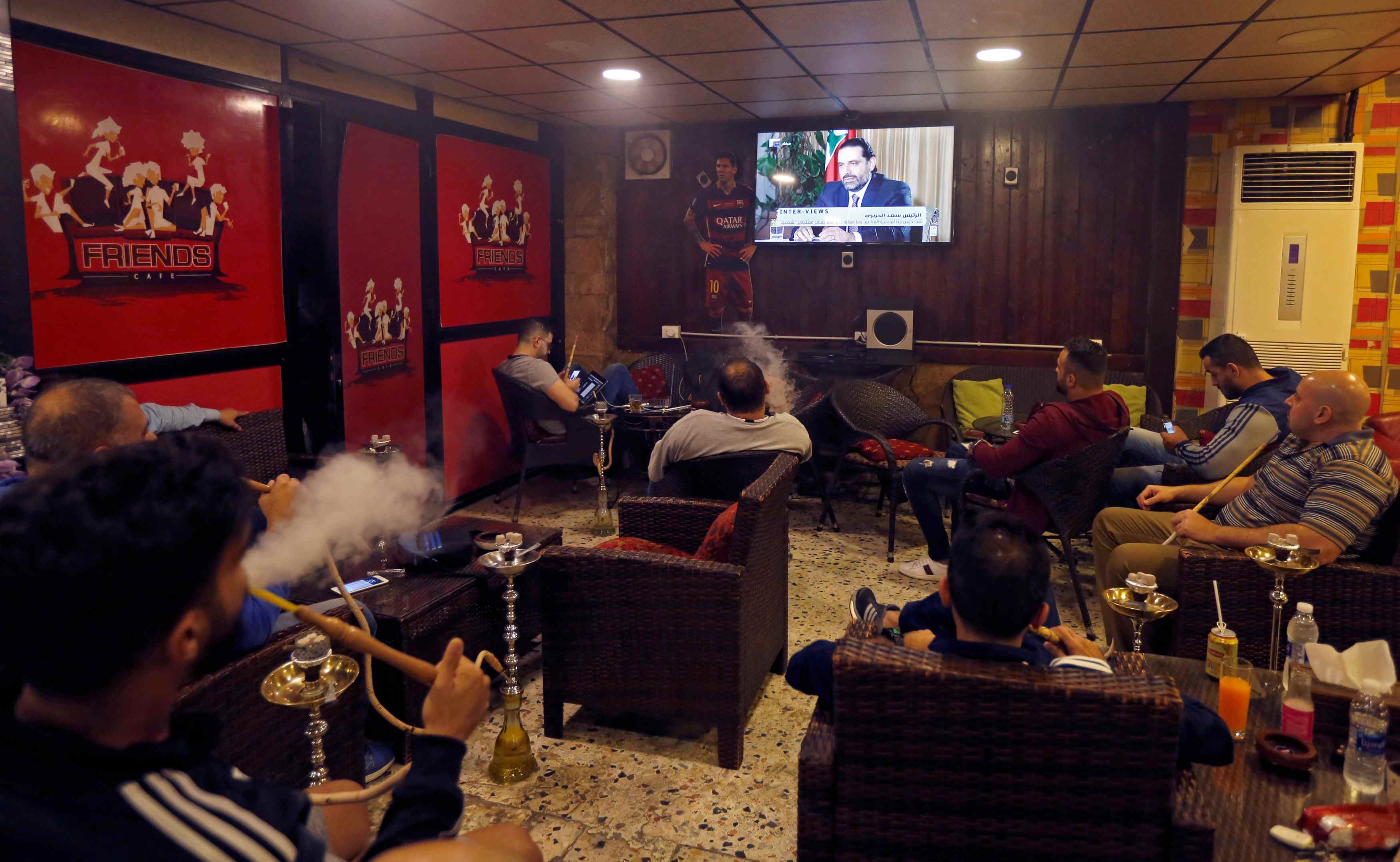
Lebanon's former prime minister Saad al-Hariri during Future television interview, on a TV screen in a coffee shop in Beirut, on November 12, 2017. /Reuters Photo
Lebanon's former prime minister Saad al-Hariri during Future television interview, on a TV screen in a coffee shop in Beirut, on November 12, 2017. /Reuters Photo
Hariri’s statement led to widespread fears among Lebanese politicians and bankers who felt Riyadh, with help from its regional allies, intends to enforce an economic blockade on their country unless its demands are met – just as it did on Qatar a few months ago.
However, unlike the gas-rich Qatar which has a native population of a mere 300,000, Lebanon lacks the natural and financial resources to deal with economic sanctions. Also, Lebanon earns an estimated 7-8 billion US dollars a year through remittances from the 400,000 compatriots working in Gulf countries. These vital inflows of cash could be severed in the eventuality of sanctions. Lebanese people are genuinely worried about the potential fallout.
“These are serious threats to the Lebanese economy which is already dire. If they cut the transfer of remittances, that will be a disaster,” a senior Lebanese official told Reuters.
“[Hariri’s interview] gave an indication of what might be waiting for us if a real compromise is not reached. The playbook is there in Qatar,” Reuters quoted a Lebanese source familiar with Saudi thinking as saying.
Fight over Hezbollah
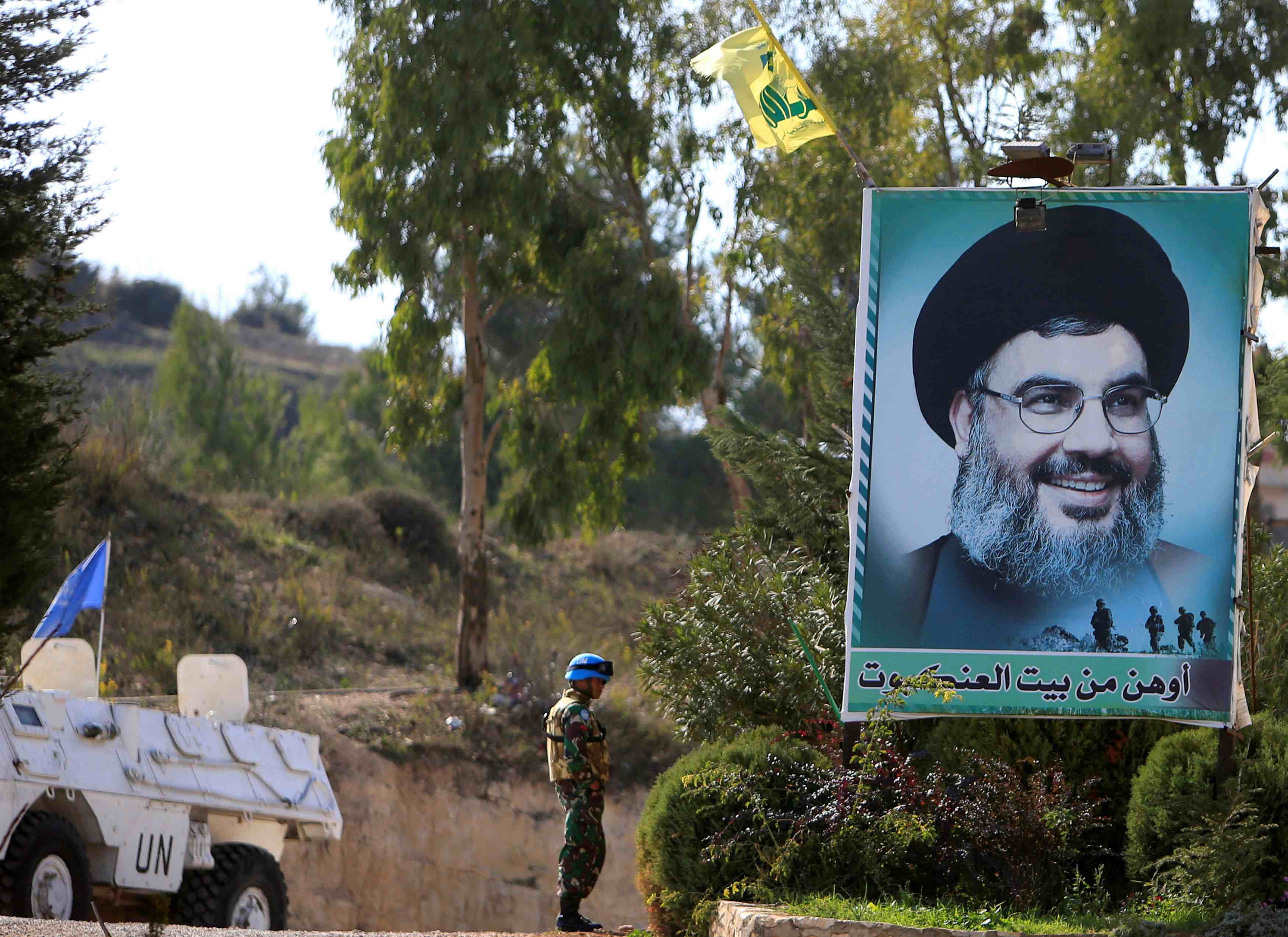
A UN peacekeeper of the United Nations Interim Force in Lebanon (UNIFIL) stands near a poster depicting Lebanon's Hezbollah leader Sayyed Hassan Nasrallah in Adaisseh in southern Lebanon, on November 7, 2017. /Reuters Photo
A UN peacekeeper of the United Nations Interim Force in Lebanon (UNIFIL) stands near a poster depicting Lebanon's Hezbollah leader Sayyed Hassan Nasrallah in Adaisseh in southern Lebanon, on November 7, 2017. /Reuters Photo
Lebanese analyst Sarkis Naoum told Reuters that Riyadh wanted Hariri to return to Lebanon and press president Michel Aoun to open dialogue and address their conditions on Hezbollah’s regional interventions. “They need to come up with a position that will be satisfactory to the Saudis... If the Saudis decide on sanctions they will do it,” Naoum said.
Observers say when Hariri formally submits his resignation after returning to Beirut, Lebanese lawmakers are likely to nominate him again for the prime ministerial position and Aoun will ask him to form a new government.
That would open the door to a long period of political talks like those which preceded the formation of the national unity government that made Hariri prime minister a year ago.
Hariri is expected to call on Aoun to convene political dialogue on key issues facing Lebanon, chiefly on reaffirming the country’s policy of staying out of regional conflicts and Hezbollah’s role in conflicts outside Lebanon’s borders, senior political sources say.
Any attempt to keep Hezbollah out of the government, in line with Saudi wishes, will torpedo the talks, political sources say.
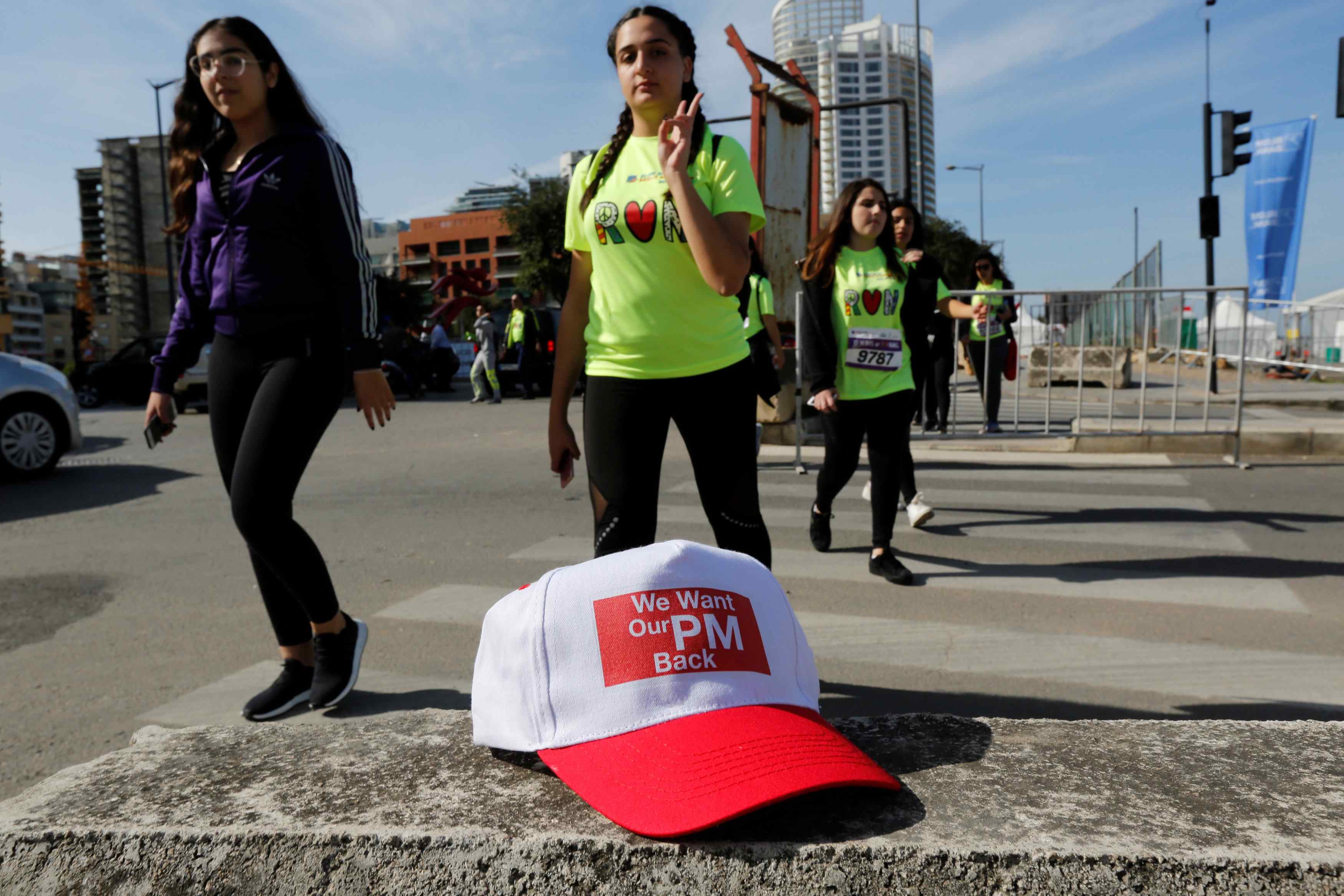
A participant shows a victory sign during the annual Beirut Marathon, in Beirut,on November 12, 2017. /Reuters Photo
A participant shows a victory sign during the annual Beirut Marathon, in Beirut,on November 12, 2017. /Reuters Photo
A source close to Hariri said he had ”put the ball in the court of Aoun, Hezbollah and its allies, by saying ‘business cannot continue as usual.’ There was no sugar-coating. The sanctions were spelled out clearly. They want Lebanon to be disassociated from Hezbollah,” he said.
Hezbollah, a movement with a heavily armed fighting force in addition to seats in parliament and government, is Iran’s spearhead in the region.
Hezbollah and Iran’s involvement in Syria has also transformed the war in favor of President Bashar al-Assad, while Saudi support for Sunni rebels in Syria’s civil war have amounted to little.
(With input from agencies)

